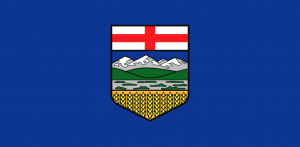Origins of The Names Of Canadian Provinces and Territories

British Columbia, Nova Scotia, Manitoba… the names of Canadian provinces are all so different from each other, it seems. Where did these names come from? Do you know the origin of your home province’s name? Why is Alberta called Alberta? Where did the name Saskatchewan originate? Today, we’re going to find out.
Let’s go from the left coast to the right, starting with British Columbia. B.C. is neither British, nor Colombian, so why British Columbia? While I’m sure the British part is fairly self-explanatory to you, where did the Columbia part come from? It was 1858 when Queen Victoria named this beautifully rugged province and she chose the word, “British” to describe the monarchy that claimed Canada as part of their kingdom. Columbia, however, came from the name of the Columbia River which flows from British Columbia to Oregon state. The river itself, got its name from American trade pioneer, Captain Robert Gray’s ship Columbia.
Queen Victoria had a daughter named Princess Louise Caroline Alberta who was married to the Governor General of Canada. When Alberta officially became a Canadian province, its name came from the Princess.
In 1905 Saskatchewan became a province as well, and it was named for the Cree word for “Swift-flowing river”. The word in Cree is infinitely more complicated to spell, but it sure looks cool: kisiskâciwanisîpiy.
The prairie province of Manitoba was named for the Algonquin nation’s great life spirit, Manitou. Manitou flows through everything, from flora to fauna and the earth and the skies. It is the source of everything, according to these First Nations and so, I believe it is a great honour to be a Manitoban. The original phrase in Cree is Ojibwa manidoobaa, and it means, exactly, straits of Manitou, the Great Spirit. Manitoba is a daily word in our conversation as Canadians, it’s nice to know the origin is so meaningful.
Ontario, it is no surprise, was named for Lake Ontario, but what was Lake Ontario named for? Well, it’s derived from an Iroquoian word, skanadario, which means, very simply, beautiful water.
It should, at this point, come as no surprise to you that Quebec, too, was named for a First Nations word. Another Algonquin word, kébec. It means, where the river narrows and it’s not hard to sort out why it’s named that, if you look at a map of Quebec City. The St. Lawrence River flows steadily through this French Canadian city, narrowing as it approaches, just after île d'Orléans.
In Lower Saxony, a state in modern Germany, there lies the old city of Braunschweig (Brunswick in English). In 1784, the British monarch was King George III, whose family hailed from Braunschweig. King George III, a member of the House of Hanover, or the House of Brunswick-Lüneburg, served as Duke of Braunschweig and as such, named his newly acquired colony, New Brunswick.
Nova Scotia is named for Scotland, in Latin. It literally means New Scotland. The colony got its name in 1621 by Royal Charter.
The origin of the name of Prince Edward Island is fairly obvious, I think, having been named for the fourth son of King George III and Queen Victoria’s old man!
Newfoundland and Labrador are really two different names, aren’t they? Let’s tackle them one at a time, then, shall we? Newfoundland was translated from the Portuguese phrase, terra nova, which means new land. The Portuguese were active explorers and their influence along the East Coast can be felt in many ways, including the name, Labrador. That came from the Portuguese explorer, João Fernandes Lavrador, and yes, it’s okay if you read that with a Portuguese accent.
Nunavut was named in 1999 when it separated from the Northwest Territories. The newest territory in Canada, its name means “our land” in the Inuktitut language.
In relation to Rupert’s Land, the Northwest Territories lies North and West. That’s why it was aptly named, Northwest Territories. So, what was Rupert’s Land? A huge territory under the control of the Hudson’s Bay Company until 1870, when it was slowly broken up into parts we now know as Alberta, Saskatchewan, Manitoba, Nunavut, Ontario and Quebec.
Another native name, the Yukon is adapted from the Locheux word, "Yuk-un-ah". It’s the Locheux word for great river and suits this large territory, which is home to the mighty Yukon River, which bend and twists through the Yukon to Alaska.
Which province are you from? Did you know where the name of your province originated? Let us know in the comments!





Leave a Reply